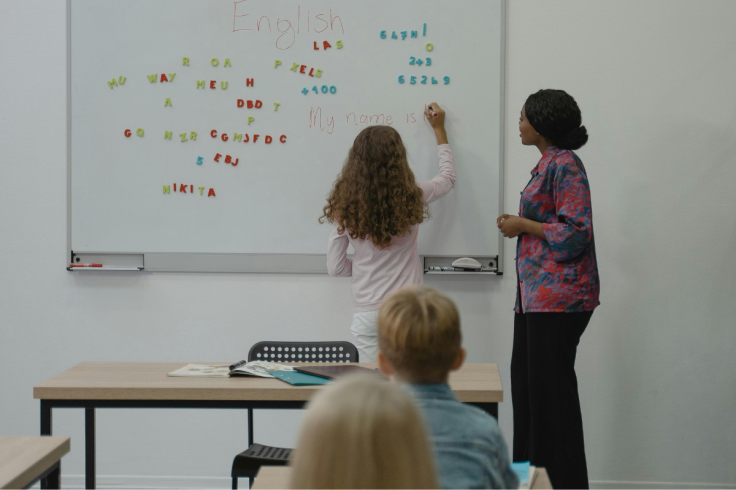Teachers Sound Alarm: School-Starters Lack Toilet Trained Readiness, Miss Key Skills
Unprepared arrivals disrupt routines, with teachers sacrificing curriculum time for basics like nappy changes

Teachers across England are sounding urgent alarms as more reception pupils arrive unprepared, with 85 per cent reporting at least one child needing toilet help, fuelling a school readiness crisis that diverts precious teaching time. This surge in untrained starters, compounded by speech delays in 92 per cent of classes, stems from pandemic isolation and screen overload, threatening long-term learning for thousands.
As experts warn of a looming educational chasm, the government's £1.5 billion ($2.30 billion) early years investment offers hope, but frontline pleas for parent-school partnerships grow louder amid this basic skills deficit.
Survey: 85% of Classes Face Toilet Training Shortfalls
A Teacher Tapp poll of 1,000 primary educators in England, conducted a week into the 11 September 2025 term, exposed stark gaps: 33 per cent of teachers handle at least five reception pupils requiring toilet aid, while eight per cent manage ten or more.
At St Mary's Church of England Primary in Stoke, deputy head Catherine Miah noted a third of nursery entrants need such support, but collaborative efforts with families ensure most achieve independence by reception. This pattern, echoed in Kindred Squared's 2024 findings of one in four starters untrained, persists into 2025, straining resources in underfunded primaries.
Unprepared arrivals disrupt routines, with teachers sacrificing curriculum time for basics like nappy changes, exacerbating staff burnout in a sector already losing nearly a quarter to exits. Pepe Di'Iasio of the Association of School and College Leaders declared on 12 September 2025, 'It has left schools picking up the pieces. Many children are starting school already several months behind their peers.'
An X post from @mrsblazer2 on 5 September 2025 reflected parental frustration: 'More children starting school unable to use a toilet/hold a fork or sit on a chair!'
Working with preschool it is amazing how much they realise they can do if given the time. Today parents are rushed & do not allow their children to do this, what a loss. More children starting school unable to use a toilet/hold a fork or sit on a chair!
— mrsblazer🇺🇦 (@mrsblazer2) September 5, 2025
Early intervention, like St Mary's team approach, proves vital to bridge these toilet trained readiness gaps.
Speech Delays Hit 92% of Reception Classes in 2025
In Stoke, speech therapist Liz Parkes observed on 12 September 2025, 'Children are increasingly spending a lot of time looking at a screen and not necessarily engaged in more meaningful interactions.'
This leaves a quarter of pupils needing extra support upon entry, dropping to mere handfuls by Year 2 through targeted therapy, yet national shortages hinder widespread aid.
Miah urged, 'We've had to make sacrifices elsewhere, but if children aren't ready to learn you could sit them in front of the best phonics lessons in the world, they're not going to take it onboard.'
Poverty, cited by 93 per cent of health visitors as rising, amplifies these challenges, with economic pressures delaying developmental milestones. Ofsted's 2024 report flagged key stage one regressions, with silent Year 1 cohorts waiting turns to speak, underscoring the crisis' ripple effects.
Government Targets 75% Readiness by 2028
The Department for Education aims for 75 per cent of reception leavers hitting good development levels by 2028, up from 68 per cent in 2024, demanding 45,000 more annual achievers in toilet use, attention, and dressing. A £1.5 billion ($2.30 billion) infusion rebuilds early years services, expanding care for thousands while freeing teachers for core instruction, as a spokesperson affirmed on 12 September 2025.
Yet, 49 per cent of educators deem 2025 worse than prior years, with boys lagging girls in readiness by 54 per cent of reports. Parent Diane from Stoke praised joint efforts: 'School have helped me to help him become more independent and more confident,' after her son's swift nappy-free transition. Charities like ERIC push campaigns such as All Aboard the Toilet Train, offering stigma-free helplines amid July spikes in calls.
With 33 per cent of 2022/23 starters falling short overall, experts warn that unchecked delays could fuel lifelong disadvantage. Unified action, from limiting screens to expanding therapist access, may yet prevent the crisis from deepening. Educators are also calling for clear readiness checklists, endorsed by Secretary Bridget Phillipson, to ensure families and schools are aligned before September 2026 intakes.
© Copyright IBTimes 2025. All rights reserved.




















